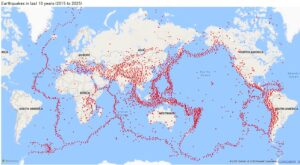The first thing you might ask yourself upon reading this article’s headline is, “Why does this matter?”
Good question. The first answer is, “because it’s cool.”
The second, more complete answer is, “Because sooner or later, humans are going to be tramping around on the Red Planet, and having an idea what conditions we might face there is a good idea.”
After all, NASA’s Artemis program aims to build long-term habitation on the moon by the decade’s end. And after that, Mars beckons.

A rendering of the Jezero Crater on Mars. It looks pretty cold, right? Well, maybe not as cold as you’d think. Illustration: NASA
So, what’s the weather like there?
The answer might surprise you. According to a paper published in the Bulletin of the American Meteorological Society, the wind on Mars probably feels surprisingly balmy.
“Thermometer readings from Mars are highly misleading to terrestrials who base their expectations of thermal comfort on their experience in Earth’s much thicker atmosphere,” writes Randall Osczevski in his paper Martian Windchill in Terrestrial Terms.
A winter day in the south of England
It all has to do with wind chill. The wind chill is a factor of air temperature and air speed. Explains the National Weather Service, “As wind blows across our bodies, it takes the heat we naturally emit and blows it away from our bodies. The faster the wind speed, the faster our body heat is taken away and the colder it feels.”
Relative cold is also a factor of “the physical properties of the medium in which one is immersed,” according to Osczevski.
“Many have experienced the shock of discovering that immersion in 20°C water feels much colder than being in air at the same temperature. Water carries the heat away from the body much faster than air does at the same temperature. We do not often experience this nuance of windchill on Earth because atmospheric properties do not vary greatly from place to place or from day to day, but they do from planet to planet. Earth’s atmosphere, being much denser than that of Mars, is analogous to the water in the above example,” he continues in the paper.

An image from the Perseverance rover. Photo: NASA
With me so far? Good.
Because of the factors discussed above, the relatively thin atmosphere of Mars saps heat much less effectively than the atmosphere of Earth. As Osczevski says, “Mars is much colder for thermometers than for people.”
How much colder? In one section of his paper, Osczevski states that a summer afternoon in Mars’ tropical latitudes might feel roughly equivalent to a winter day in the south of England.
Sounds downright pleasant! Well, as pleasant as things get out beyond the boundaries of our home planet, in any case.






